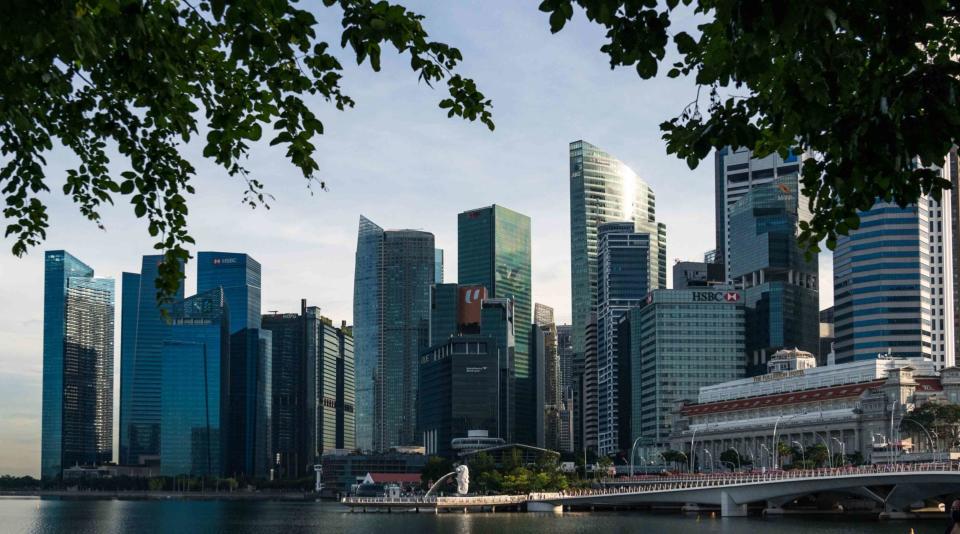3QFY2022 results season may bring about potential surprises: DBS

Certain upside surprises could come from reopening beneficiaries such as SIA, CLAS, CDLHT, Suntec REIT and UMS
DBS Group Research analysts Yeo Kee Yan and Janice Chua expect the upcoming 3QFY2022 season commencing mid-October to witness a mix of ups and downs, where market volatility will likely bring several potential surprises for various companies.
According to the analysts, certain upside surprises could come from reopening beneficiaries such as Singapore Airlines (SIA), CapitaLand Ascott Trust (CLAS) formerly Ascott Residence Trust, CDL Hospitality Trusts (CDLHT) and Suntec REIT as well as UMS.
This is particularly so with the reopening of the North Asia region, in light of Hong Kong, Japan, and Taiwan having announced the most recent reopening plans, which benefits SIA. In addition, Japan’s reopening is the most liberal, which benefits CLAS with around 18% of assets under management (AUM).
While Hong Kong’s reopening is targeted towards business more than leisure travellers for now, Yeo and Chua note that further easing moving forward will benefit Mapletree Pan Asia Commercial Trust (MPACT)’s Festival Walk and Dairy Farm International (DFI)’s food and beverage (F&B) and convenience stores.
At this stage, there is also cautious optimism that China could shift away from its zero-Covid policy sometime after the mid-October National Congress meeting.
On the other hand, Chua and Yeo say that Daiwa House Logistics Trust (DHLT) may suffer a distribution per unit (DPU) cut with the weak Japanese yen, and Digital Core REIT (DCREIT) as well with just 50% of its debt hedged.
“Our chief economist continues to adjust global growth expectations,” write Yeo and Chua, in light of how US recession odds have risen with the Fed funds rate, which are anticipated to reach 5% by 1Q2023. US gross domestic product (GDP) y-o-y growth was cut to 1.5% for this year and 0.3% next year as well.
Meanwhile, Singapore’s core inflation may stay elevated in the coming months, according to the Monetary Authority of Singapore (MAS).
The Straits Times Index (STI) now trades below 11.7x at a -1.5 standard deviation (s.d.) 12-month forward P/E as investors question the sustainability of positive earnings revisions and earnings per share (EPS) growth of 11.8% in FY2022 and 15.3% in FY2023.
The analysts note that a probe at a support level of approximately 3,130 points for the STI or 11.2x (-2 standard deviations or s.d.) 12-month forward P/E is possible if investors price in a technical recession scenario, but this remains above the lows in June and July.
For REITs, Yeo and Chua advise avoiding REITs with low absolute yield and weak earnings per unit (EPU) growth and high gearing.
The analysts observe that Parkway Life REIT (PLifeREIT), Mapletree Logistics Trust (MLT) and Keppel DC REIT have the lowest FY2023 yield.
“PLifeREIT would be one to be avoided as the FY2023 yield forecast of 3.2% is slightly lower than the risk-free rate,” say the analysts. “Elite Commercial REIT, Suntec REIT and Manulife US REIT (MUST) have gearing levels of over 40%, where Elite Commercial REIT is recommended to be avoided among the three given its gearing of 41.9% and 45% of debt expiring in FY2022-FY2023.”
Some risks that Yeo and Chua anticipate include that of a sharp slowdown for both developing market (DM) and emerging market (EM) economies that may grow. Singapore’s base case remains one of no recession, despite slowing GDP growth of up 3.5% y-o-y for FY2022 and up 3% for FY2023.
“Besides banks as rate hike beneficiaries, companies with resilient earnings that are able to pass on costs and maintain strong cash flows should outperform in the current environment,” Chua and Yeo write.
The analysts’ picks among the counters they deem resilient are SIA, ComfortDelGro, Sheng Siong and Raffles Medical.
The STI closed at 15.16 points higher or 0.49% up at 3,130.24 points on Sept 30.
See Also:
Click here to stay updated with the Latest Business & Investment News in Singapore
Broker's Digest: Grab Holdings, Digital Core REIT, CapitaLand Ascott Trust, ST Engineering
Analysts keep 'buy' on Nanofilm as it sees 'significant runway' for company to capture new customers
Get in-depth insights from our expert contributors, and dive into financial and economic trends

 Yahoo Finance
Yahoo Finance 